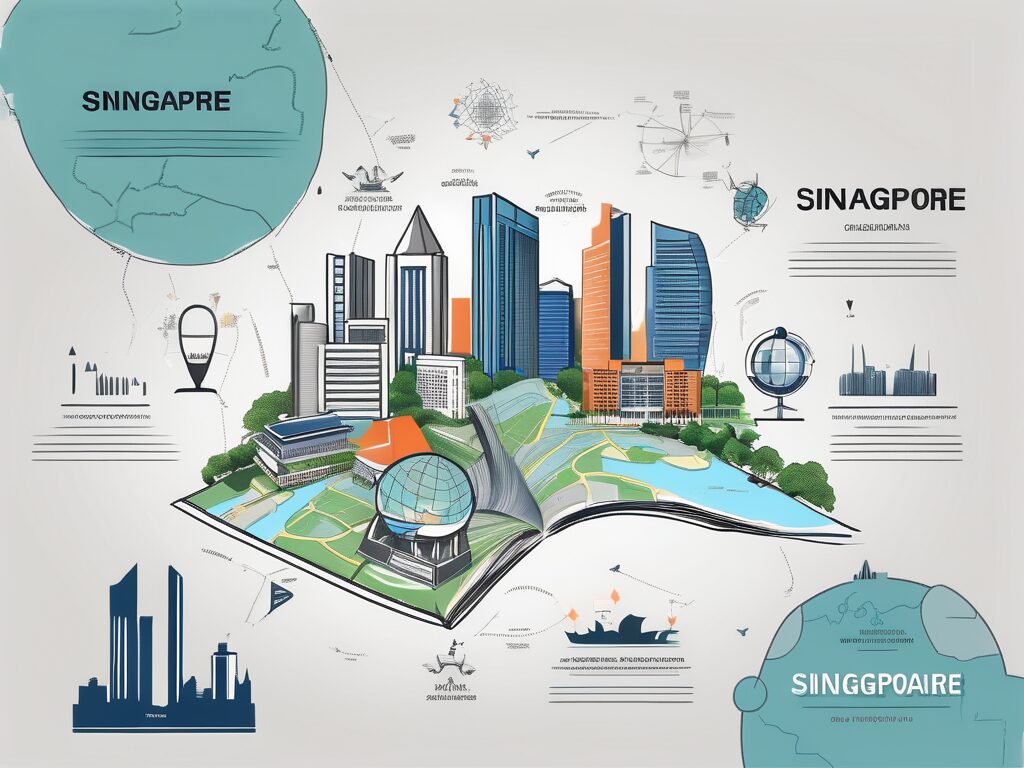Singapore, a bustling city-state in Southeast Asia, is renowned for its remarkable economic growth, cultural diversity, and high standard of education. One of the key factors contributing to its success is the proficiency of its residents in English. In this blog post, we will delve into four fascinating insights about English proficiency in Singapore.
1. The Role of English in Singapore’s Education System
The Bilingual Policy
English holds a significant place in Singapore’s education system. The city-state implements a unique bilingual policy, where English is taught as the first language, and students also learn their mother tongue, which could be Mandarin, Malay, or Tamil. This policy ensures that students are proficient in English, while also maintaining their cultural roots.
Furthermore, the medium of instruction in schools is English, which further enhances the students’ proficiency. From a young age, Singaporeans are exposed to English, not only in their academic studies but also in their daily interactions, making them adept at the language.
English Proficiency Examinations
English proficiency is not just encouraged but also assessed in Singapore. The city-state has a series of examinations to evaluate the English proficiency of its students. These include the Primary School Leaving Examination (PSLE) and the General Certificate of Education (GCE) ‘O’ and ‘A’ Levels, where English is a compulsory subject.
These examinations not only assess the students’ understanding of the language but also their ability to use it effectively in various contexts. This rigorous assessment ensures that Singaporeans are well-versed in English, equipping them with the necessary skills to thrive in the globalised world.
2. English as a Lingua Franca
The Multicultural Society
Singapore is a melting pot of cultures, with residents from different ethnic backgrounds. English serves as a common language, or lingua franca, that bridges the communication gap among the diverse population. It enables Singaporeans of different ethnicities to interact and understand each other, fostering a sense of unity and harmony in the multicultural society.
Moreover, English is not just confined to formal settings. It is widely used in informal contexts as well, such as in social gatherings and casual conversations. This widespread use of English in daily life further enhances the proficiency of Singaporeans in the language.
Singlish: The Local Creole
While English is the official language, Singapore has its own unique version of English, known as Singlish. Singlish is a creole language that blends English with elements of Malay, Mandarin, Hokkien, and other dialects. It is a testament to Singapore’s multicultural identity and linguistic creativity.
Although Singlish is often discouraged in formal settings due to its deviation from standard English, it is widely spoken in informal contexts. It adds a local flavour to the English language and is an integral part of Singapore’s linguistic landscape.
3. English in the Business World
Global Business Hub
English proficiency plays a crucial role in Singapore’s status as a global business hub. With its strategic location and robust infrastructure, Singapore attracts businesses from around the world. The widespread use of English facilitates communication and business transactions, making Singapore an attractive destination for international businesses.
Furthermore, the high level of English proficiency among Singaporeans makes them desirable employees in the global job market. They can effectively communicate with their international counterparts, negotiate deals, and contribute to the global business discourse.
Professional Development
English proficiency is also essential for professional development in Singapore. Many companies offer training programmes and workshops to enhance their employees’ English skills. This not only improves their communication skills but also opens up opportunities for career advancement.
Moreover, English proficiency is often a prerequisite for higher education and professional qualifications in Singapore. Thus, having a good command of English can significantly boost one’s career prospects.
4. English in the Media and Entertainment
English-Language Media
English is prevalent in Singapore’s media landscape. Most newspapers, magazines, and television channels are in English, which not only caters to the diverse population but also reinforces English proficiency.
Furthermore, the use of English in the media exposes Singaporeans to different accents and dialects of English, enhancing their understanding and appreciation of the language’s diversity.
Local Entertainment Scene
English also dominates the local entertainment scene. Many local films, plays, and music are produced in English, reflecting Singapore’s multicultural identity. These productions not only entertain but also promote English proficiency among the audience.
In conclusion, English proficiency is deeply ingrained in Singapore’s education system, society, business world, and media. It is a testament to the city-state’s global outlook and multicultural identity. As Singapore continues to thrive in the globalised world, English proficiency remains a key asset for its residents.
Enhance Your Teaching Career with IPGCE
As English proficiency continues to be a cornerstone of success in Singapore and beyond, educators have a unique opportunity to advance their careers and join a global network of qualified professionals. The International Postgraduate Certificate in Education (iPGCE) is the key to unlocking your potential in the international education landscape. With our program, you can overcome common barriers such as stringent qualification requirements, limited career progression, and isolation from professional communities. Embrace the chance to deepen your understanding of global education systems and enjoy the flexibility of online study designed for working teachers. Don’t let inadequate credentials hold you back. Join the UK’s #1 Teacher Training Course and witness a significant transformation in your professional journey. Enroll in iPGCE today and be part of the success story.

